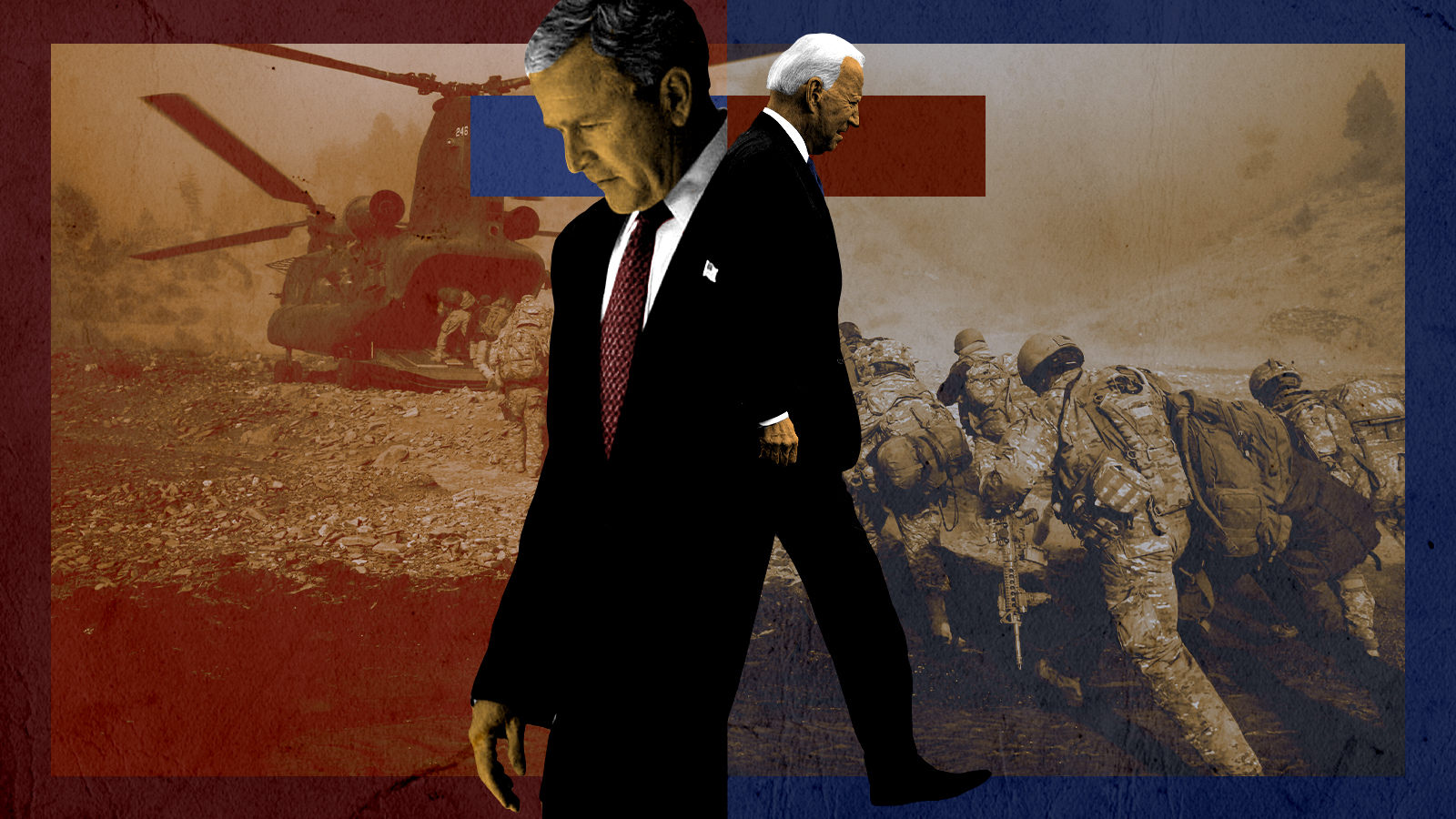The war in Afghanistan is over. The foreign-policy debate is not.


A free daily email with the biggest news stories of the day – and the best features from TheWeek.com
You are now subscribed
Your newsletter sign-up was successful
After 20 years, the war in Afghanistan is finally over — and the foreign-policy debate remains frozen in 2001.
To vast swathes of the national security elite and numerous elected officials, a largely Taliban-run Afghanistan is as likely to serve as the homebase for terrorist attacks against the United States and its allies as when we invaded in response to the 9/11 terrorist attacks nearly two decades ago.
There is as much consternation about an "over the horizon" approach to counterterrorism, as some argue it repeats the past failures of airstrikes and drones to truly defeat threats even as they continue to generate collateral damage that plays an important role in stirring up anti-Western radicalism. In Washington, there still remains no consensus on whether the real problem was interventionism run amuck in the 2000s and 2010s or neglect of terrorism in the 1990s.
The Week
Escape your echo chamber. Get the facts behind the news, plus analysis from multiple perspectives.

Sign up for The Week's Free Newsletters
From our morning news briefing to a weekly Good News Newsletter, get the best of The Week delivered directly to your inbox.
From our morning news briefing to a weekly Good News Newsletter, get the best of The Week delivered directly to your inbox.
Even before the last troops left Afghanistan, there was talk that there is no such thing as a forever war — or that such wars can never really be ended. Some people essentially said both things.
It may yet be that all the king's horses and all the king's men will discover that not even skipping town can put Humpty-Dumpty back together again. From Vietnam to Iraq, we have seen dead-enders argue that more time, money, and bodies could have made the difference, that these wars failed because we lost our will to fight. These debates carry on until this day, even though the Soviet incursion into Afghanistan proved far more costly to their Cold War ambitions than America's messy departure from Vietnam.
But the war in Afghanistan was related to an attack on America as direct as any since the Japanese bombing of Pearl Harbor. It is different.
And yet the fact that so little else is should give us pause about attempting a nation-building exercise of that scale, in such an underdeveloped country, ever again.
A free daily email with the biggest news stories of the day – and the best features from TheWeek.com
W. James Antle III is the politics editor of the Washington Examiner, the former editor of The American Conservative, and author of Devouring Freedom: Can Big Government Ever Be Stopped?.
-
 Political cartoons for February 21
Political cartoons for February 21Cartoons Saturday’s political cartoons include consequences, secrets, and more
-
 Crisis in Cuba: a ‘golden opportunity’ for Washington?
Crisis in Cuba: a ‘golden opportunity’ for Washington?Talking Point The Trump administration is applying the pressure, and with Latin America swinging to the right, Havana is becoming more ‘politically isolated’
-
 5 thoroughly redacted cartoons about Pam Bondi protecting predators
5 thoroughly redacted cartoons about Pam Bondi protecting predatorsCartoons Artists take on the real victim, types of protection, and more
-
 Why is the Trump administration talking about ‘Western civilization’?
Why is the Trump administration talking about ‘Western civilization’?Talking Points Rubio says Europe, US bonded by religion and ancestry
-
 Trump touts pledges at 1st Board of Peace meeting
Trump touts pledges at 1st Board of Peace meetingSpeed Read At the inaugural meeting, the president announced nine countries have agreed to pledge a combined $7 billion for a Gaza relief package
-
 ‘The mark’s significance is psychological, if that’
‘The mark’s significance is psychological, if that’Instant Opinion Opinion, comment and editorials of the day
-
 Big-time money squabbles: the conflict over California’s proposed billionaire tax
Big-time money squabbles: the conflict over California’s proposed billionaire taxTalking Points Californians worth more than $1.1 billion would pay a one-time 5% tax
-
 Did Alex Pretti’s killing open a GOP rift on guns?
Did Alex Pretti’s killing open a GOP rift on guns?Talking Points Second Amendment groups push back on the White House narrative
-
 Washington grapples with ICE’s growing footprint — and future
Washington grapples with ICE’s growing footprint — and futureTALKING POINTS The deadly provocations of federal officers in Minnesota have put ICE back in the national spotlight
-
 Trump’s Greenland ambitions push NATO to the edge
Trump’s Greenland ambitions push NATO to the edgeTalking Points The military alliance is facing its worst-ever crisis
-
 Why is Trump threatening defense firms?
Why is Trump threatening defense firms?Talking Points CEO pay and stock buybacks will be restricted
